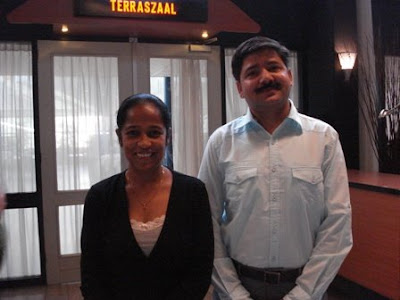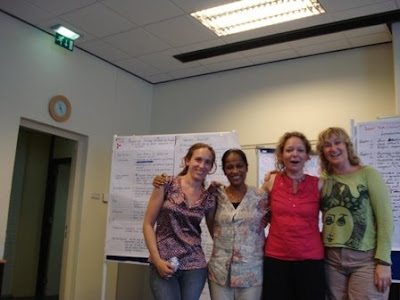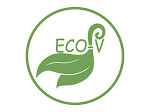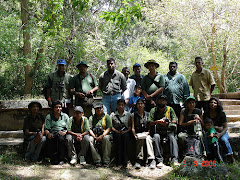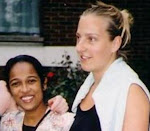

On 9th December 2009 Harsha, Tharaka, Indika and Kanchana got involved in releasing a Rock python (Python molurus) which was caught in Boralesgamuwa in the suburbs of Colombo. We got the message at 4.30 in the evening but the villagers had caught it in the previous night and kept in a barrel under very pathetic conditions. When we phoned the National zoo we were asked to release it to the Attidiya marsh which is a sanctuary where there are lots of people. We were not happy by the idea as we felt that the python will face the same danger again as there is a possibility of getting it caught by people again. When Tharaka and Indika visited the place where the python was kept people have gathered around it and making fun by showing it to the people who have gathered due to news that spread from the previous night. Somehow they were able to persuade the villagers to release the python. Tharaka, Indika and Harsha were able to put the python in to a big bag and transported it to a forest in Avissawella area by a van. The mission was accomplished around 8pm after getting delayed at an Army checkpoint where we had to answer many questions about transporting a python in a bag. However at the end of the day we all were happy as we rescued its life.
Next day morning Kanchana had to face another group of villagers who were trying to kill a Banded Kukri snake (Oligodon arnensis/“ Arani Dath Ketiya”) while she was waiting for kids’ school van. She was alone trying to convince the people that this snake does not harm for people and asked them to help her to catch it. But they were not so please about her request. However she was able to stop men killing the innocent creature and caught it into a bag and released into the reservation in the Bellanwila marsh behind her house. Wow it was a week of snakes!
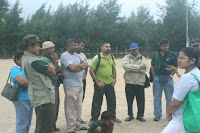
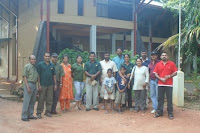
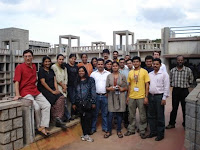
.jpg)
.jpg)



